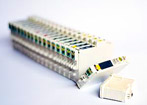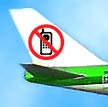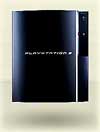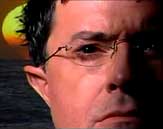 Could a common component used in consumer electronics lead to eyestrain, headaches, disturbed sleep, and even increase the risk of cancer? It sounds alarmist, but in fact the first three of these claims are accepted as fact by experts in relevant fields – the last, the risk of cancer, is unproven.
Could a common component used in consumer electronics lead to eyestrain, headaches, disturbed sleep, and even increase the risk of cancer? It sounds alarmist, but in fact the first three of these claims are accepted as fact by experts in relevant fields – the last, the risk of cancer, is unproven.
Stories rated highest by users
Blue LEDs: A health hazard?
Online game cheats must pay with blood to regain accounts
An online game operator has demanded that banned players donate blood to be allowed back into the game. Moliyo, which runs a 3D massively multiplayer online game in China, made the demand after banning 120,000 players who attempted to hack the game, according to gaming news website, 17173.com.
Monkey-cow hybrid stem cells to be created by scientists
Researchers in Korea are close to combining monkey DNA with cow cell to create a man-made stem cell, they claim. The scientists believe they will ultimately be able to implant human DNA into an animal ova to make an artificial stem cell which avoids some of the current ethical issues surrounding stem cell 'harvesting'.
Google tests dumbed down search service
Could Google's search interface get any simpler? Google is testing a new service that aims to make common searches even easier – after discovering that many users are confused by its basic search page. The directory-style 'Google Navigator' service being trialled in China is simply a page full of the most common search phrases.
Confused users just click on the one they want.
Why don't mobile phones have an international warranty?
You can't get an international warranty for your mobile phone.
Think about that for a minute. The electronic gadget that you are certain to take with you when you go abroad doesn't have a worldwide guarantee. And that cool new cellphone you buy when you're on vacation won't be covered if it breaks as soon as you get home. That's the situation in much of the world for phones from Nokia, Motorola, Sony-Ericsson, and other vendors.
Great Wall of China disappears again
US astronauts who claim to have spotted the Great Wall of China from space must be imagining things, Chinese scientists say. The Great Wall of China cannot be seen from space, because the human eye cannot resolve such fine detail, a team of academics stated in a recently published paper.
At least two US astronauts say they spotted the Great Wall from earth orbit – above 150km. They include last man on the moon, Gene Cernan; and international space station crewmember Ed Lu.
New software cracks Adobe PDF files in seconds, says developer that beat Adobe DMCA case
Almost all password-protected PDF files are vulnerable to new software that can crack them in seconds, developer Elcomsoft announced today. The Russian firm earlier beat legal action prompted by PDF creator, Adobe, after releasing a program to defeat e-book encryption in 2001.
Weak 40-bit encryption, which is used in “most” PDF files, according to Elcomsoft, can usually be broken in a few minutes with the most advanced version of the new software, the company claimed in a press statement released in Moscow today.
Non-profit OLPC 'will be profitable for some'
While the One Laptop per Child (OLPC) project has taken on the aura of a charity – if you believe what you read in the mainstream media – the hard numbers tell a different story. Analysts say the component suppliers that have taken a gamble on the project stand a fair chance of coming out winners.
Printer ink is about to get much cheaper
Global market blunts razor-and-blades model
Prices for printer ink have been slashed by up to 70 percent as manufacturers struggle to get to grips with greater competition and more price-aware consumers. The most dramatic price cuts are so far affecting only regional markets, but insiders believe it is inevitable they will spread worldwide, shaking the $100bn-a-year imaging supplies business to its foundations, and bringing huge savings to heavy printer users.
Hackers in $2.7 million stock scam, SEC alleges
Updated April 27: Hackers made $2.7 million in one month by reading corporate press releases before they were published, US financial officials have charged. A single trade in stock of the security software vendor, Symantec, made more than $1 million in less than 12 hours, according to US Securities and Exchange Commission (SEC) documents.









